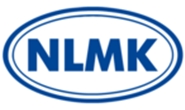Market Segment

April 25, 2019
Commerce: NLMK USA Must Pay Tariffs on Imported Slabs
Written by Tim Triplett
Management at NLMK USA is contemplating its next move after receiving the disappointing news Tuesday that the U.S. Commerce Department has denied its appeals for exclusions from the Section 232 tariffs on imported slabs.
Commerce has determined that semifinished steels are available in sufficient quantities to support the domestic market, and that slab converters like NLMK USA should be able to source the slabs they need from other U.S. mills. “That conclusion ignores the facts of the situation,” said NLMK USA President and CEO Bob Miller. “The integrated mills that make thick steel slabs have more rolling capacity than melting capacity. So, it is not in their best interest to provide steel slabs to their competitors.”
NLMK USA produces 2.6 million to 3.0 million tons of flat rolled steel per year at its plants in Indiana and Pennsylvania. It must supplement the steel it produces at its EAF in Indiana with imported slabs from its parent company in Russia and foreign sources in Brazil (which are subject to quotas), among others.
Historically, NLMK USA has purchased enough semifinished material from other domestic sources to meet about 6 percent of its overall needs. Since the tariffs were implemented last year, it has been able to increase its domestic slab purchases to 20-25 percent. But that’s not enough to maintain its business in the U.S., Miller said. To continue serving its loyal customer base, the company has paid about $165 million in tariffs on the slabs it has imported. “When they are available to us at a fair price and on a fair timeline, we will continue to buy slabs from our domestic competitors,” Miller said.
But the company’s business model will require it to continue importing semifinished steel. When steel prices were on the increase last year, the company could pay the 25 percent tariff and still earn some margin. Now that steel prices are on the decrease, margins are getting squeezed. “That could have an impact on our overall levels of production and our ability to serve our customers. Importantly, it could affect our employees,” Miller said. The company “will do everything we can” to avoid any layoffs among NLMK’s U.S. workforce of 1,200.
NLMK feels it has been treated unfairly by the tariff and the tariff exclusion process. “The government is picking winners and losers. We are hamstrung by the tariffs. We are discussing internally what steps to take to protect our interests. We will continue to strive to do the right things for our long-term business,” Miller added.
The Commerce Department’s ruling sustains objections filed by U.S. steelmakers, including U.S. Steel and Nucor, who maintain that the domestic industry has the capacity to produce enough slabs to meet the market’s needs. The tariffs “level the playing field” against foreign competitors who ship unfairly priced and subsidized products to the U.S., the steelmakers argue.
Denials of exclusion requests by NLMK USA and other slab converters could have a ripple effect on flat rolled steel supplies and pricing. Slab rerollers represent 10-15 percent of apparent sheet demand, estimates analyst Phil Gibbs of Keybanc Capital Markets.







